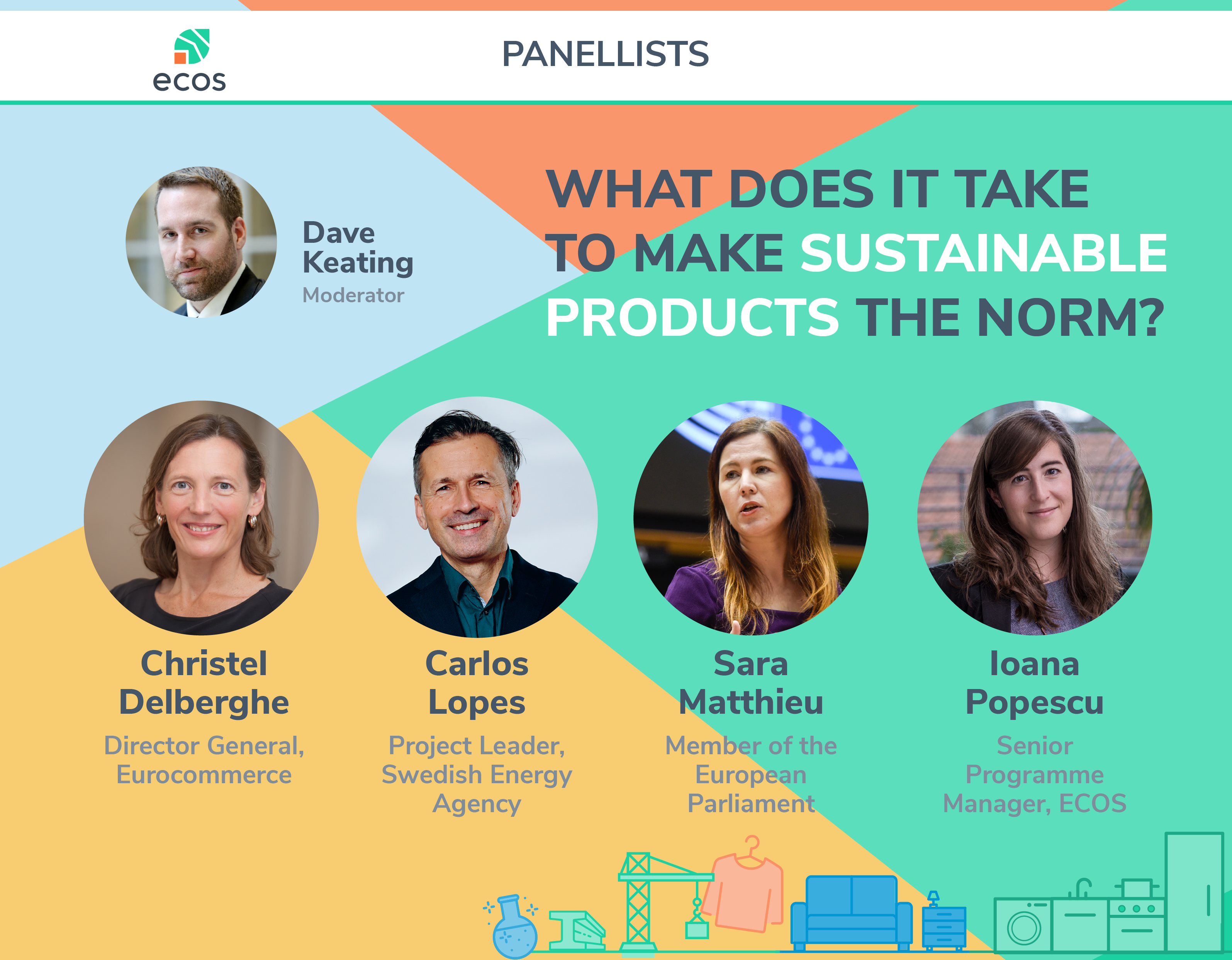Making sustainable products the norm – ecodesign as a tool for change
In March, the European Commission presented an ambitious package of regulatory proposals to implement its Circular Economy Action Plan. The proposal for a Regulation on Ecodesign for Sustainable Products (ESPR) extends ecodesign to a broad range of sectors, including textiles and construction products, finally addressing negative environmental impacts embedded in products by design. However, work needs to be done so that the package lives up to its full potential.

 On 16 June 2022, ECOS hosted its annual conference on the theme ‘ecodesign as a tool for change’, focusing on the ESPR and how to make it a success. The event saw contributions from experts and policymakers, including a keynote speech by Aurel Ciobanu-Dordea, director, circular economy at DG Environment. You can watch it again below or read a summmary here!
On 16 June 2022, ECOS hosted its annual conference on the theme ‘ecodesign as a tool for change’, focusing on the ESPR and how to make it a success. The event saw contributions from experts and policymakers, including a keynote speech by Aurel Ciobanu-Dordea, director, circular economy at DG Environment. You can watch it again below or read a summmary here!
We need to make sustainable products the norm. Without policy intervention, by 2050 the world’s population is expected to be consuming resources at a rate three times higher than the Earth can regenerate. Global consumption of materials such as biomass, fossil fuels, metals and minerals is expected to double by 2060.
Up to 80% of the environmental impact of products is determined at the design phase, yet the linear pattern of ‘take-make-use-dispose’ does not provide producers with sufficient incentives to make their products more circular. Many products break down too quickly, cannot be easily reused, repaired or recycled, or, worse still, are made for a single use only.
The ESPR is set to be a game-changer. In contrast to traditional circular economy measures that focus on the end-of-life phase – such as returning products to the supply chain instead of landfill – the ESPR aims at building in sustainability throughout the entire product lifecycle, starting at the design phase. By doing so, it also seeks to unlock the potential of circular business models and more sustainable consumption.
Watch our conference again!
Download the document

